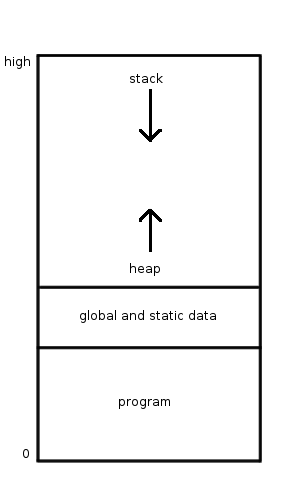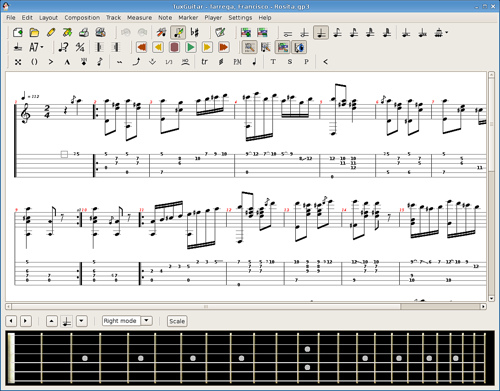|
Object Pascal
Object Pascal is an extension to the programming language Pascal (programming language), Pascal that provides object-oriented programming (OOP) features such as Class (computer programming), classes and Method (computer programming), methods. The language was originally developed by Apple Inc., Apple Computer as ''Clascal'' for the Apple Lisa, Lisa Workshop development system. As Lisa gave way to Mac (computer), Macintosh, Apple collaborated with Niklaus Wirth, the author of Pascal, to develop an officially standardized version of Clascal. This was renamed Object Pascal. Through the mid-1980s, Object Pascal was the main programming language for early versions of the MacApp application framework. The language lost its place as the main development language on the Mac in 1991 with the release of the C++-based MacApp 3.0. Official support ended in 1996. Gen Digital, Symantec also developed a compiler for Object Pascal for their Think Pascal product, which could compile programs muc ... [...More Info...] [...Related Items...] OR: [Wikipedia] [Google] [Baidu] [Amazon] |
Imperative Programming
In computer science, imperative programming is a programming paradigm of software that uses Statement (computer science), statements that change a program's state (computer science), state. In much the same way that the imperative mood in natural languages expresses commands, an imperative program consists of command (computing), commands for the computer to perform. Imperative programming focuses on describing ''how'' a program operates step by step (with general order of the steps being determined in source code by the placement of statements one below the other), rather than on high-level descriptions of its expected results. The term is often used in contrast to declarative programming, which focuses on ''what'' the program should accomplish without specifying all the details of ''how'' the program should achieve the result. Procedural programming Procedural programming is a type of imperative programming in which the program is built from one or more procedures (also termed s ... [...More Info...] [...Related Items...] OR: [Wikipedia] [Google] [Baidu] [Amazon] |
Ppc64
ppc64 is an identifier commonly used within the Linux, GNU Compiler Collection (GCC) and LLVM free software communities to refer to the target architecture for applications optimized for 64-bit big-endian PowerPC and Power ISA processors. ppc64le is a pure little-endian mode that has been introduced with the POWER8 as the prime target for technologies provided by the OpenPOWER Foundation, aiming at enabling porting of the x86 Linux-based software with minimal effort. Details These two identifiers are frequently used when compiling source code to identify the target architecture. 64-bit Power and PowerPC processors are the following: * PowerPC 620 * RS64 – Apache, RS64-II Northstar, RS64-III Pulsar/IStar, and RS64-IV SStar * POWER3 and POWER3-II * POWER4 and POWER4+ * PowerPC 970, 970FX, 970MP and 970GX * POWER5 and POWER5+ * PPE in Cell BE, PowerXCell 8i and Xenon. * PWRficient * POWER6 and POWER6+ * POWER7 and POWER7+ * A2, A2I (used in the Blue Gene/Q) an ... [...More Info...] [...Related Items...] OR: [Wikipedia] [Google] [Baidu] [Amazon] |
Simula
Simula is the name of two simulation programming languages, Simula I and Simula 67, developed in the 1960s at the Norwegian Computing Center in Oslo, by Ole-Johan Dahl and Kristen Nygaard. Syntactically, it is an approximate superset of ALGOL 60, and was also influenced by the design of SIMSCRIPT. Simula 67 introduced objects, classes, inheritance and subclasses, virtual procedures, coroutines, and discrete event simulation, and featured garbage collection. Other forms of subtyping (besides inheriting subclasses) were introduced in Simula derivatives. Simula is considered the first object-oriented programming language. As its name suggests, the first Simula version by 1962 was designed for doing simulations; Simula 67 though was designed to be a general-purpose programming language and provided the framework for many of the features of object-oriented languages today. Simula has been used in a wide range of applications such as simulating very-large-scale inte ... [...More Info...] [...Related Items...] OR: [Wikipedia] [Google] [Baidu] [Amazon] |
Turbo Pascal
Turbo Pascal is a software development system that includes a compiler and an integrated development environment (IDE) for the programming language Pascal (programming language), Pascal running on the operating systems CP/M, CP/M-86, and MS-DOS. It was originally developed by Anders Hejlsberg at Borland, and was notable for its very fast compiling. Turbo Pascal, and the later but similar Turbo C, made Borland a leader in PC-based development tools. For versions 6 and 7 (the last two versions), both a lower-priced Turbo Pascal and more expensive Borland Pascal were produced; Borland Pascal was oriented more toward professional software development, with more Library (computing), libraries and standard library source code. The name Borland Pascal is also used more generically for Borland's dialect of the language Pascal, significantly different from Standard Pascal. Borland has released three old versions of Turbo Pascal free of charge because of their historical interest: the ori ... [...More Info...] [...Related Items...] OR: [Wikipedia] [Google] [Baidu] [Amazon] |
JavaScript
JavaScript (), often abbreviated as JS, is a programming language and core technology of the World Wide Web, alongside HTML and CSS. Ninety-nine percent of websites use JavaScript on the client side for webpage behavior. Web browsers have a dedicated JavaScript engine that executes the client code. These engines are also utilized in some servers and a variety of apps. The most popular runtime system for non-browser usage is Node.js. JavaScript is a high-level, often just-in-time–compiled language that conforms to the ECMAScript standard. It has dynamic typing, prototype-based object-orientation, and first-class functions. It is multi-paradigm, supporting event-driven, functional, and imperative programming styles. It has application programming interfaces (APIs) for working with text, dates, regular expressions, standard data structures, and the Document Object Model (DOM). The ECMAScript standard does not include any input/output (I/O), such as netwo ... [...More Info...] [...Related Items...] OR: [Wikipedia] [Google] [Baidu] [Amazon] |
Cocoa (API)
Cocoa is Apple's native object-oriented application programming interface (API) for its desktop operating system macOS. Cocoa consists of the Foundation Kit, Application Kit, and Core Data frameworks, as included by the Cocoa.h header file, and the libraries and frameworks included by those, such as the C standard library and the Objective-C runtime.Mac Technology Overview: OS X Frameworks Developer.apple.com. Retrieved on September 18, 2013. Cocoa applications are typically developed using the development tools provided by Apple, specifically Xcode (formerly [...More Info...] [...Related Items...] OR: [Wikipedia] [Google] [Baidu] [Amazon] |
Java (programming Language)
Java is a High-level programming language, high-level, General-purpose programming language, general-purpose, Memory safety, memory-safe, object-oriented programming, object-oriented programming language. It is intended to let programmers ''write once, run anywhere'' (Write once, run anywhere, WORA), meaning that compiler, compiled Java code can run on all platforms that support Java without the need to recompile. Java applications are typically compiled to Java bytecode, bytecode that can run on any Java virtual machine (JVM) regardless of the underlying computer architecture. The syntax (programming languages), syntax of Java is similar to C (programming language), C and C++, but has fewer low-level programming language, low-level facilities than either of them. The Java runtime provides dynamic capabilities (such as Reflective programming, reflection and runtime code modification) that are typically not available in traditional compiled languages. Java gained popularity sh ... [...More Info...] [...Related Items...] OR: [Wikipedia] [Google] [Baidu] [Amazon] |
Oxygene (programming Language)
Oxygene (formerly known as Chrome) is a programming language developed by RemObjects Software for Microsoft's Common Language Infrastructure, the Java Platform and Cocoa. Oxygene is based on Delphi's Object Pascal, but also has influences from C#, Eiffel, Java, F# and other languages. Compared to the now deprecated Delphi.NET, Oxygene does not emphasize total backward compatibility, but is designed to be a "reinvention" of the language, be a good citizen on the managed development platforms, and leverage all the features and technologies provided by the .NET and Java runtimes. Oxygene is a commercial product and offers full integration into Microsoft's Visual Studio IDE on Windows, and its own IDE called Fire for use on macOS. Oxygene is one of six languages supported by the underlying Elements Compiler toolchain, next to C#, Swift, Java, Go and Mercury (based on Visual Basic (.NET)). From 2008 to 2012, RemObjects Software licensed its compiler and IDE technology to ... [...More Info...] [...Related Items...] OR: [Wikipedia] [Google] [Baidu] [Amazon] |
Free Pascal
Free Pascal Compiler (FPC) is a compiler for the closely related programming-language dialects Pascal and Object Pascal. It is free software released under the GNU General Public License, witexception clausesthat allow static linking against its runtime libraries and packages for any purpose in combination with any other software license. It supports its own Object Pascal dialect, as well as the dialects of several other Pascal family compilers to a certain extent, including those of Borland Pascal (named "Turbo Pascal" until the 1990 version 6), Borland (later Embarcadero) Delphi, and some historical Macintosh compilers. The dialect is selected on a per-unit (module) basis, and more than one dialect can be used per program. It follows a '' write once, compile anywhere'' philosophy and is available for many CPU architectures and operating systems (see Targets). It supports inline assembly language and includes an internal assembler capable of parsing several dialects such a ... [...More Info...] [...Related Items...] OR: [Wikipedia] [Google] [Baidu] [Amazon] |
Delphi (software)
Delphi is a general-purpose programming language and a software product that uses the Delphi dialect of the Object Pascal programming language and provides an integrated development environment (IDE) for rapid application development of desktop, mobile, web, and console software, currently developed and maintained by Embarcadero Technologies. Delphi's compilers generate native code for Microsoft Windows, macOS, iOS, Android and Linux ( x64). Delphi includes a code editor, a visual designer, an integrated debugger, a source code control component, and support for third-party plugins. The code editor features Code Insight (code completion), Error Insight (real-time error-checking), and refactoring. The visual forms designer has the option of using either the Visual Component Library (VCL) for pure Windows development or the FireMonkey (FMX) framework for cross-platform development. Database support is a key feature and is provided by FireDAC (Database Access Components). D ... [...More Info...] [...Related Items...] OR: [Wikipedia] [Google] [Baidu] [Amazon] |
Java (software Platform)
Java is a set of computer software and specifications that provides a software platform for developing application software and deploying it in a cross-platform computing environment. Java is used in a wide variety of computing platforms from embedded devices and mobile phones to enterprise servers and supercomputers. Java applets, which are less common than standalone Java applications, were commonly run in secure, Sandbox (computer security), sandboxed environments to provide many features of native applications through being embedded in HTML pages. Writing in the Java (programming language), Java programming language is the primary way to produce code that will be deployed as Java byte code, byte code in a Java virtual machine (JVM); byte code compilers are also available for other languages, including Ada (programming language), Ada, JavaScript, Kotlin (programming language), Kotlin (Google's preferred Android language), Python (programming language), Python, and Ruby (p ... [...More Info...] [...Related Items...] OR: [Wikipedia] [Google] [Baidu] [Amazon] |




